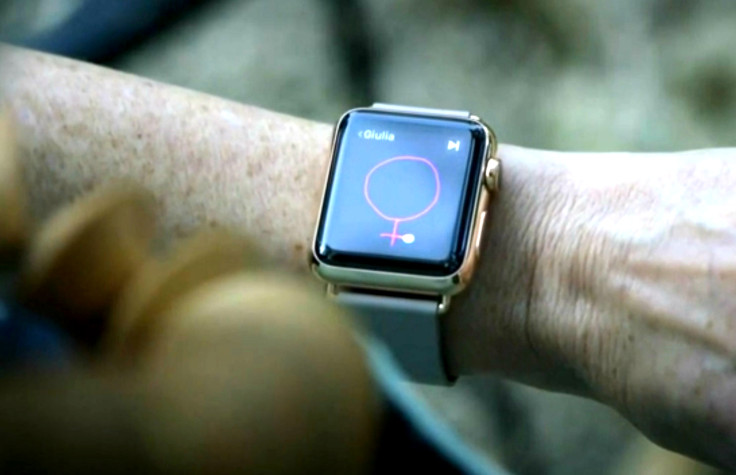Apple Watch conspicuously absent from Q3 results as shares slide $60bn

Apple has disappointed markets with its third quarter results despite a 33% increase in sales to $49.6bn (£31.7bn, €45.3bn) – more than the combined revenues of US giants Amazon, Best Buy, JC Penny, and Sears in their latest quarters.
The markets reacted to a perceived slowdown in the smartphone market, which was met with a 7% drop in Apple shares, wiping some $60bn from its market capitalisation.
Apple has been in the habit of vaunting the metrics of best performing products, so much attention has been focused on the fact the company did not break out sales volumes for its new Apple Watch, which launched in April.
Conlumino, a retail research agency and consulting firm based in New York City, crunched some numbers and came up with a guestimate of 3.2 million units shipped with associated sales revenue of $1.49bn.
Analysts from Conlumnio said: "While Apple's success is beyond question, it does not immunise the company from making the odd misstep. This quarter that misstep came in the form of Apple Watch – or to be precise, in the way Apple Watch was launched.
"Unusually for Apple, and barring a handful of exceptions, it only made the Watch available through its own stores. In this case, 'available' meant having to pre-order rather than walk in and pick up the device on the day of its release.
"Despite Apple's protestations that it was 'trying something different' or 'wanting to provide the best possible retail experience', the decision really came down to the fact that there was an acute shortage of devices thanks to a problem with a supplier which produced the 'Taptic Engine' component.
"Naturally, this lack of supply suppressed sales across the quarter and also deprived other retailers of the traditional revenue bump they receive from new Apple launches."
Apple provided a raft of positive management comments: the Apple Watch had better volumes than the iPhone and iPad; it was only available in stores from mid-June; it began to surge finishing the quarter strongly; it will be available in more countries next quarter.
The iPhone accounted for almost two thirds of Apple's revenues this quarter, having made up less than half of turnover three years ago.
It sold 35% more iPhones this quarter year-on-year and saw sales in China, Hong Kong and Taiwan double to $13.2bn as more people there opted to switch from Android devices.
Jon Copestake, retail analyst at the Economist Intelligence Unit, said: "It seems counter-intuitive that Apple's numbers should be so poorly received by the markets given a 33% jump in quarterly revenue and a 38% jump in profits.
"The fact that Apple has seen Chinese sales more than double, despite a slower environment and the weakening of the stock market, is testament to the fact that both the iPhone 6 and the newly released Apple Watch have driven momentum for the brand.
"With Apple outselling rivals such as Samsung it seems that expectations may have been too high and the market response highlights how much Apple now has to live up to in a changeable environment."
In addition to consternation over future growth from new products like Apple Watch, the market is also watching for progress with likes of Apple Pay and the recently launched Apple Music streaming service.
The latter of these is already under scrutiny having entered a crowded marketplace occupied by Spotify and Jay Z's Tidal as well as having been made to compromise on royalties by Taylor Swift.
Analysts from Investec said: "iPhone volumes were slightly light versus Street estimates on a 'sell-in' basis. However, Apple's Q3 is still indicative of a relatively strong and elongated iPhone cycle, with 35% growth in unit volumes, albeit offset slightly by an expected fall in iPad volumes."
© Copyright IBTimes 2025. All rights reserved.






















